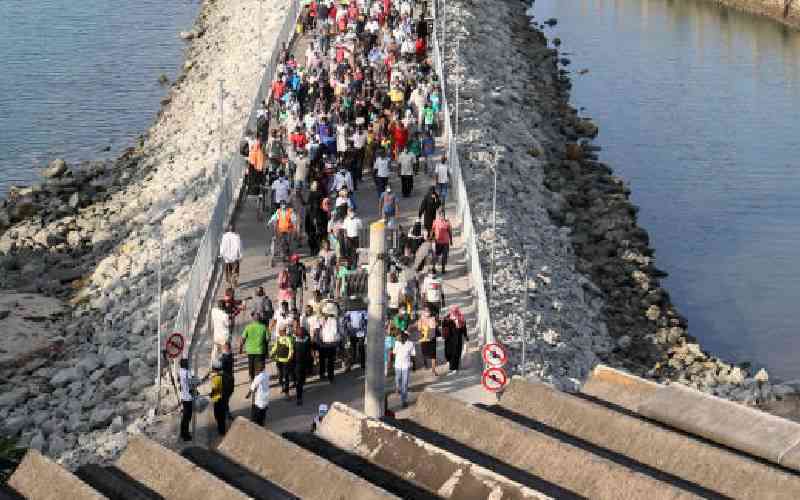×
The Standard e-Paper
Join Thousands Daily

Residents using the Likoni floating pedestrian bridge to Mombasa Island on March 31, 2021. [File, Standard].
The Likoni pedestrian bridge was closed indefinitely on Friday night as Kenya Ports Authority (KPA) launched the night pilotage of oil tankers.
